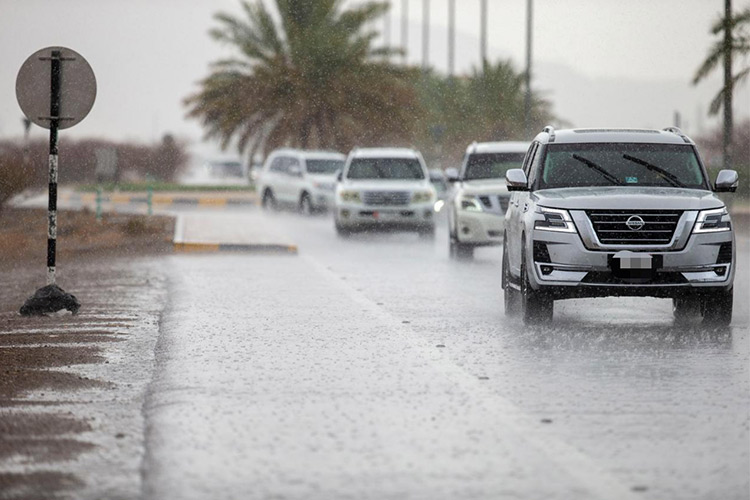UNITED NATIONS (news agencies) — Whether it’s Gaza, Ukraine, Syria or a new world order, it’s been Russia versus the United States and the West during Moscow’s presidency of the Security Council this month, with the growing divide on vivid display.
The tension was hardly new.
Since Russia’s invasion of Ukraine in February 2022 in violation of the U.N. Charter, which stresses the sovereignty and territorial integrity of all 193 members of the world organization, the West has been lashing out at Moscow.
But this month, with Russia in charge of the Security Council agenda, the animosity was more public, even down to how frosty the formalities were.
The U.S. deputy ambassador, Robert Wood, has refused to call the Russian foreign minister or any other Russian diplomat “Mr. President,” as is standard for any man presiding over the council — a further sign of the icy state of U.S.-Russian relations.
In return, Russian diplomats have added an edge to the customary response to speakers with whom Russia is at odds, especially Americans.
“As the president of the Security Council, I am compelled to thank the United States for his statement,” a clearly angry Dmitry Polyansky, Russia’s deputy ambassador, said in response to critical remarks from Wood about Russia at a meeting Monday on Syria.
The teeth-clenching has reinforced the sense of a Security Council that’s often been at cross-purposes in recent years, but is able to be somewhat diplomatic and adopt resolutions on some world hot spots.
“It has been a month of petty diplomatic point-scoring rather than any really major meltdowns,” said Richard Gowan, U.N. director of the International Crisis Group, a think tank.
The verbal clashes between Russian and Western diplomats have been a feature of almost every council meeting.
When Russia used its signature meeting, chaired by Foreign Minister Sergey Lavrov, to push for a more democratic world order with many centers of power, outraged Western ambassadors pushed back, saying Moscow had no standing to raise the issue after invading Ukraine and flouting international law.
Lavrov started the meeting by criticizing the United States for declaring “its own exceptionalism.” He went on to cite George Orwell’s famed novel “Animal Farm,” saying, “All animals are equal, but some are more equal than others.” Lavrov then denounced NATO’s expansion in Europe.
U.S. Ambassador Linda Thomas-Greenfield countered by accusing Russia of “willfully and flagrantly violating the core tenets of the United Nations Charter: territorial integrity, respect for human rights, international cooperation.”
Britain’s Ambassador Barbara Woodward was equally tough: “While you tell us how you believe the world order can become more just, democratic and sustainable, your military is systematically bombing civilians in Ukraine in an unprovoked war of aggression, and in flagrant violation of the U.N. Charter.”
France’s top U.N. diplomat, Nicolas de Riviere, compared Russia to “a pyromaniac firefighter.”
“It calls for a more just world order but is multiplying its violations of the Charter and jeopardizing our collective security,” de Riviere said.
When Russia called a meeting Thursday to denounce Western weapons supplies to Ukraine, Western diplomats accused Russia of getting arms from North Korea and Iran in violation of U.N. sanctions, and accused China of supplying material to prop up Russia’s defense industrial base – which Beijing’s envoy denied.
At the council meeting on Syria, Russia accused the United States and its allies of attempting to destabilize the country with their “illegal presence.” Wood accused Russia and its close ally Syria of obstructing efforts to end the country’s 13-year civil war.
Early in the month, Russia’s ambassador, Vassily Nebenzia, invited his 14 Security Council counterparts to a retreat at his country’s Long Island estate. One of the topics was the qualifications of the people Moscow had invited to brief members at the numerous meetings it has called on Ukraine, according to a council diplomat who spoke on condition of anonymity because the meeting was private.
Russia’s briefers on Ukraine have included peace activists, political commentators and freelance journalists. At a recent Russian-organized news conference, one speaker was the international secretary of the Communist Party who had visited Russian-occupied areas of eastern Ukraine.



